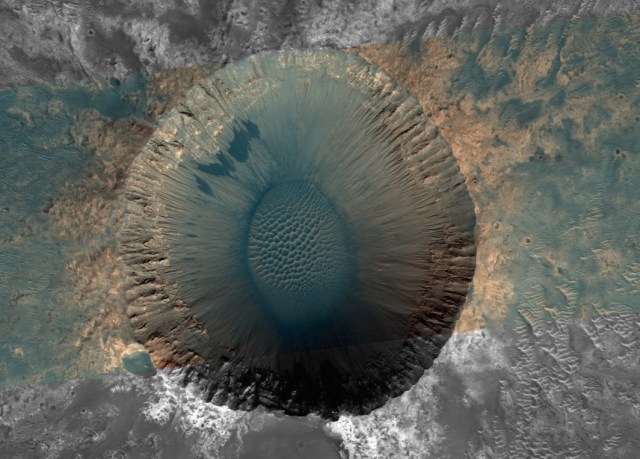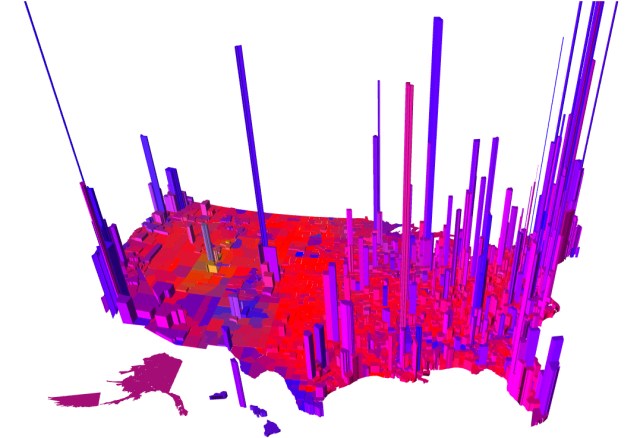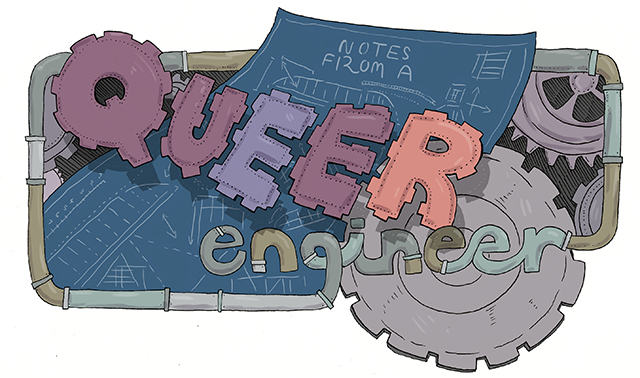Header by Rory Midhani
I’m sorry to bring you more bad news, babe, but here we are. Let’s ease into it.
Geekery Grab Bag
+ Book review: The Glass Universe: How the Ladies of the Harvard Observatory Took the Measure of the Stars
+ Genderfluid astrophysicist Dr. JJ Eldridge gave a talk this summer on The Science of Sci-fi: mind/body swapping and gender diversity, and it’s very interesting! Lots of Star Trek.
+ Could artificial meat save the planet?
+ Ambio Journal did a special issue on gender + climate resilience
+ Via Flowing Data: Shift Your Point of View to When America Was “Better”
+ Have you looked at NASA’s Tumblr lately? It’s pretty good. Here’s a post on how we’re planning to send humans to Mars.

Meltdown
+ NPR: For Some, Scientists Aren’t The Authority On Science
+ Priebus confirms that climate denial will be the official policy of Trump’s administration
+ Astronomer Carol Off on Trump advisor’s plan to cut NASA research
+ US President-Elect Donald Trump has said vaccines cause autism (wrong)
+ Post-truth: a guide for the perplexed. If politicians can lie without condemnation, what are scientists to do? Kathleen Higgins has some thoughts. (Speak out.)
+ And as if all that political news wasn’t enough, Great Barrier Reef Hit by Worst Coral Die-Off on Record
+ West Antarctic ice will collapse in our lifetimes

Can’t Hold Us Down
+ A bit of good news that most ecologists weren’t expecting: recent ecology hires are gender balanced
+ Marine Biologist Ayana Elizabeth Johnson, National Geographic:
Instead of forsaking my field, I have refined my mission. I will focus more sharply on ocean conservation as a social justice issue – working to support poor communities and communities of color who rely on the ocean. These are the people most deeply affected by the impacts of overfishing, pollution, and sea level rise. Creating and nurturing broad coalitions and implementing solutions at these intersections is a needed form of activism.
+ Breakthrough success in science depends on productivity, not age
+ Dr. Tressie McMillan Cottom, Finding Hope in a Loveless Place:
I have been black a long time and I have been southern for about as long. I’m talking at least one lifetime if you don’t count the culture trapped in my bones, inherited from my people. I am trained a social scientist. I know how polls work, much to the chagrin of the professionally smart men who sneered at me when I said this nation could absolutely elect Donald Trump.
+ If you have five minutes to spare, here’s a really nice message from Emily Graslie at The Field Museum:
“The way that I’ve been able to increase my appreciation for differences is by actively pursuing curiosity and by challenging biases — whether they relate to an aspect of our natural world, or toward a cultural or racial group that I don’t personally identify with. We do that all of the time with The Brain Scoop when talking about science, and it’s no different when we challenge our preconceived notions about people who are different than us or who hold different beliefs.”
Do Make Say Think
+ Applications for the 2017 Mass Media Science & Engineering Fellows Program are open and it looks pretty neat, if you’re a student interested in science communications
+ If you have a degree in STEM, Scientific American urges you to consider running for office. My personal hero Brianna Wu will be doing so next year, and you totally could too. Just think about it, okay?
+ The consumer products company I work for outside of Boston is looking to hire a quality engineer for my team! Message me and I’ll send you the full job description.
Notes From A Queer Engineer is a recurring column with an expected periodicity of 14 days. The subject matter may not be explicitly queer, but the industrial engineer writing it sure is. This is a peek at the notes she’s been doodling in the margins.









Comments
I follow a bunch of ecologists on twitter, and the election night felt like a eulogy. As the numbers rolled in everyone stopped commenting and just started tweeting pictures of the species they study. Now with the whole west Antarctic ice sheet melting…I never really realized how optimistic Kim Stanley Robinson’s Mars Trilogy was until now.
I keep surprising myself with my capacity to feel stunned and sad. But the news just keeps coming, and so.
The one good thing, I think, is that the Paris accords were set up very intentionally to resist sudden exits. So there are a lot of mechanisms built in to keep the US somewhat on course with earlier commitments.
Also the EU could pick up some of the slack in specific fields maybe? Although they have problems of their own…
That’s all I’ve got. Trying to find the bright side, but it’s hard.
And I keep hoping the population centers in the US, you know, the blue parts, will be able to make good things happen and stop some bad things by asserting their perspective for their states. Back in the day, the first pushes toward progressive policies happened at the state level. If we lose all at the federal level, that’s what we have to go back to, local demands for local action.
I don’t know if this makes it “better” or “worse”, but I call it like I see it, so here goes. Our election was, frankly, irrelevant to the output of carbon into the atmosphere, or mostly irrelevant. The Paris Accords are irrelevant too. This analysis presupposes that the US is the main releaser of carbon, or that we have the power to effectively curtail fossil fuel use in the areas where it would actually matter, and I don’t think that’s true. Neither Trump nor Clinton (had she been elected) would have been able to pressure Xi Jinping (the president of China) to cut back on the country’s emissions. I don’t care what they agreed to in the Paris Accords. It’s a meaningless piece of paper. China won’t do it (and India probably won’t either).
I’m not saying this to demonize China. I’ve been there for a good chunk of my life, celebrated three birthdays over there. I care deeply for its people, some of whom I love. I find the anti-China rhetoric that’s become fashionable as part and parcel of the rise of Trump tiresome (although our anti-CCP rhetoric is entirely too weak). I’m trying to explain what WILL happen, regardless of what anyone says or has agreed to. I read an article literally yesterday saying that China is scrambling to reopen a bunch of its coal mines, going so far as to offer workers a premium wage to come back. There is not one solitary thing we (in the West) can do about it. I think it is one of our great conceits that we over here cause all of the world’s problems, with the implication that we also have the power to solve them. It doesn’t work like that. Many of my friends with extensive international experience (in places like Latin America, southeast Asia, etc.) agree.
tl:dr; The Paris Accord is meaningless and irrelevant. Place no stock or hope in things like this.
Now, what’s the upshot? I’m not sure. I’m as open to suggestions as anyone else. I’m an ecologist (by training at least, if not by current profession). I know the score. But yeah. Don’t bug about the election. It doesn’t matter one way or another on the issue of climate change. It isn’t really about us anymore. All the other reasons to bug about the election though, yeah, go for it.
Solid points.
Ugh I feel terrible.
(Not because of you. Thank you for reading and commenting.)
Yeah, I’m sad about it too. I haven’t even been there, but one time someone else in my PhD-student cohort showed me some photos of the results of clear-cutting in Indonesia. I knew what that forest was supposed to look like. Even seeing the photo felt like a punch to the gut, and the one who showed me the pictures had stumbled upon places like that first-hand. It looks like the end of the world. I have no other way to describe it.
The US election was relevant, not because of the policies which were stated by the candidates, but because of who they would’ve hired to later deal with the issues which concern the world at large, it was a chance for the people to speak up about the issues that they thought were important and that they cared about, and in a manner they did. As disheartening it was for someone who was up till last month aspiring to move there and pursue higher education as well as live a less restrictive life… to see a bag of orange garbage get elected, well fuck that… what decidedly broke me to teeny tiny bits was the absolute disregard that people showed towards facts, put motivated reasoning aside for a moment….But to the point the Paris accord is not as good as its hyped up to be with just how much responsibility they had put on the developing countries, lack of any legal contract that would make it something that would be required to follow amongst others, what it was though was a step in the right direction, where people who decided policies had to gather and put their names on a paper that would get them politically cornered if they didn’t uphold the various interests as well as the accord to varying degrees,but now with the current us elections and just the general attitude that is being projected by the people who are going to be crafting policies, and making laws is being blatantly anti science, and this change has come because of this election and thats what is so disheartening to see because climate change is a global phenomenon and without the major push in research that came from the US i really really fear whats going to happen, like people who live in the US generally dont think about it as much but the research facilities and personnel in the US are truly world class, and them losing out on the government funds or any tax breaks that might happen because speculation(i mean why not) is going to be a huge huge blow.
You sound like you know what you’re talking about, but I’m so sick of hearing that if China doesn’t do anything we might as well just sit on our butts and give up, because it just doesn’t make any sense. China’s a big problem, but we’re the other big problem – the second largest emitter of CO2, and by far the largest emitter per capita for a country with a large population: http://www.ucsusa.org/global_warming/science_and_impacts/science/each-countrys-share-of-co2.html
Plus, there are a lot of other countries out there that make up most of the pie chart on there. I don’t see where you get the Paris Accord being meaningless. It was a thing that will do something. Probably not enough, but much more if we’re part of it because we’re a huge chunk of the problem.
I’m so sick of the vaccines causing autism crowd. It’s one of the reasons I got turned off Jill Stein (in addition to her racist behavior at Standing Rock and her transphobic remarks). Makes sense Donald would champion that. Why not? :(
The ‘vaccine injury’ community mystifies me. My cousin who just visited at Thanksgiving and is not vaccinating any of her many, many kids, thinks that vaccines may have caused her sister’s bipolar disorder. “She remembers feeling different beforehand.” What? What?
One of the problems is that people who get worked up about vaccines continually cite awards from the vaccine injury courts, not understanding that the legal standards of proof are completely different than scientific standards of proof and that in many cases where awards were made, there was still never any indication that the kid got sick BECAUSE of a vaccine – they just happened to get sick AFTER receiving a vaccine.
We’d be in a much better state as a species if people intuitively understood that “a follows b” isn’t the same as “a was caused by b”, but we are pattern-seeking to a fault. I actually looked into the vaccine stuff really extensively back in the day because of my sister’s autism. I was curious if the “bad” thimerosal-containing vaccines could have predisposed her to it. I found not a shred of evidence that vaccines have any connection to autism. I don’t buy that it’s entirely genetic (except in a few people), but whatever the environmental risk factor is, it sure ain’t vaccines.
I know a few people like that. I’ve talk to my friends who are psych majors and Drs. and they all said it’s bs. It’s odd how one wrong person can overshadow many right people.
People are exceptionally hostile to science, even on the left. GMOs are another good example. Now, I hate Monsanto as a corporation, but there’s currently no evidence that GMOs are harmful to humans. None. People want to elevate their feelings to trump science and facts.
Honestly, I didn’t even pay enough attention to Jill Stein to know she was anti-vax.
UGHH. We’ve come so far, but not enough.
From what I saw, Laura, she didn’t openly join in the anti-vaccination crowd, but she didn’t correct them either. She placated them with generic platitudes. She’s a doctor. She has an ethical responsibility that she didn’t meet. :(
I’m currently applying to grad school for a degree in ecology. I’m rather concerned about finding a job if trump’s still in office when I graduate. I’m even more concerned about endangered species and our water and air quality, especially in poor communities. How many species are we going to lose? What regulations will be removed?
I recently got in a fight with my nature-loving but trump-supporting father about trump’s environmental policy. I tried to shut down his conspiracy-fueled climate change denial. It was bad. I never fight with him. The lack of understanding of science is rampant.
I don’t actually know where I’m going with this post. I just hope that whatever damage trump and his fellow deplorables do to our environment, our communities, and our society can be repaired.
*hugs* if you want them, Quen. Not everything has to make sense. Sometimes it’s just good to spew feelings. Be afraid, be angry, be upset. There’s nothing wrong with that. :)
^ what Joanna said.
Also, thank you for going into an important field! The planet needs you.
My last high school science class was wetlands ecology, focused specifically on Louisiana and the Gulf Coast, and we even got to plant saplings as part of bolstering/restoration initiative. Traditionally my family vactions on beaches of the Gulf Coast, usually Mississippi or Bama and often a vist to a barrier island. So the summer of after my senior year was very special being able to name more animals and explain their life cycles to my little cousins and their importance in our local economy.
The next summer was the BP spill and all those fucking dispersants.
I feel your despair.
Thank you for this! I think I’ve just become a fan of Emily Graslie. Speaking of possums, I saw one at night years ago in my backyard and like Emily and her sister also looked it up. I’m from California and it turns out that possums are not native here(or really anywhere in the Western US). Possums came here during the dust bowl era as people were using them as a source of cheap and easy food.
So, this week I was listing to the episode of the Star Talk Radio podcast that came out last week(Nov 22). The topic was women in stem and the hosts were Summer Ash and Emily Rice, whom both are in the STEM fields. They are also reclaiming WCW as Woman Crushing it Wednesday(and everyday). I think I am going to start using the tag that way.
A food source! How interesting.
I love Star Talk and I support this use of WCW. #WCW
I doubt it’s a food source, at least out here in the west, but that’s certainly one way to introduce an animal to a different part of the country. That episode is great and worth a listen.
I will definitely follow Brianna Wu to see what comes of her quest for office… I had not heard of her, but we could certainly use more engineers and science-minded sorts in our legislative bodies. Currently, I’m stuck in my final year of grad school (an MSN with an emphasis on public health), but once I exit this track of full time job plus almost full time student, I plan to get much more involved in politics- local first, and maybe more later!